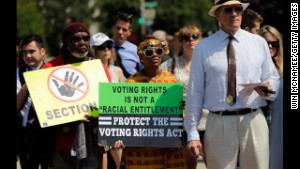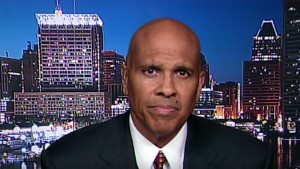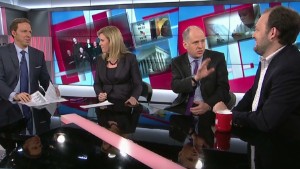Editor's note: Donna Brazile, a CNN contributor and a Democratic strategist, is vice chairwoman for voter registration and participation at the Democratic National Committee. She is a nationally syndicated columnist, an adjunct professor at Georgetown University and author of "Cooking With Grease: Stirring the Pot in America." She was manager for the Gore-Lieberman presidential campaign in 2000.
(CNN) -- In an earthshaking 1965 speech to Congress and to the nation, President Lyndon Johnson spoke directly to the sinister forces that had restricted black Americans' right to vote across the South -- laying out the goals of the Voting Rights Act in the form of a command to this shameful cabal.
"Open your polling places to all your people. Allow men and women to register and vote whatever the color of their skin. Extend the rights of citizenship to every citizen of this land," Johnson thundered. "There is no constitutional issue here. The command of the Constitution is plain." The speech stirred the country, moved the Rev. Martin Luther King Jr. to tears and secured this essential law's passage.
 Donna Brazile
Donna Brazile Today, if President Barack Obama wants to save the Voting Rights Act following Tuesday's shameful Supreme Court ruling, then he faces an even bigger challenge than Johnson did: He's got to convince a much more hostile Congress that the act is worth saving.
Hanging in the balance is the very foundation of American civil rights law. On Tuesday, nearly 50 years after Johnson's historic speech, the five conservative members of the Supreme Court eviscerated the Voting Rights Act in a single stroke. Why? According to the majority opinion, apparently it's because the discriminatory anti-voter rules the act prohibits aren't as much of a problem as they were before the law was passed.
If you're trying to think up a way to illustrate how completely nuts that is, don't worry, because Justice Ruth Bader Ginsburg already put it best in her dissent. Striking down this essential part of the act, Ginsburg wrote, "is like throwing away your umbrella in a rainstorm because you are not getting wet."
Opinion: How segregation got busted
 High court halts key civil rights law
High court halts key civil rights law  Law professor on voting rights decision
Law professor on voting rights decision  Analysis: America's Voting Rights Act
Analysis: America's Voting Rights Act Of course, Johnson was right in 1965, and he's just as right today. These protections are vital and necessary. There is no right more sacrosanct to the very foundations of our nation than the right to vote, and threats to equal voting loom every time we turn a blind eye. Constant vigilance is required to safeguard it, and for half a century the Voting Rights Act was a watchful guardian. But now that Section 5's "pre-clearance" formula has been made irrelevant, it falls to Congress to fix it.
Don't expect the conservative-controlled House of Representatives to jump at the chance though. Just last year, during the 2012 election cycle, Republican elected officials in states across the country pushed deeply hostile voter ID laws that disproportionately limit minority voters. Sometimes, the Republicans were even explicit that the purpose of these laws was to put victories in the "R" column. And all that took place with a full and complete Voting Rights Act still on the books.
Veterans of forgotten voting war count the cost
Now it's up to Obama to make a new case for a new Voting Rights Act. Of course, there's nothing partisan about equality in the ballot box. The act's great virtue is that it barred discrimination no matter which way it was directed. It was an equal opportunity shield from injustice -- protecting you no matter who you voted for or what you looked like.
It is a crying shame that the Supreme Court left a key part of Johnson's legacy in tatters. But today, Obama -- and every fair-minded American -- should look to the spirit of Johnson and King and pass a new Voting Rights Act that will stand the test of time. We can't wait. Election Day is just around the corner.
Follow us on Twitter @CNNOpinion.
Join us on Facebook/CNNOpinion.
{ 0 comments... read them below or add one }
Post a Comment